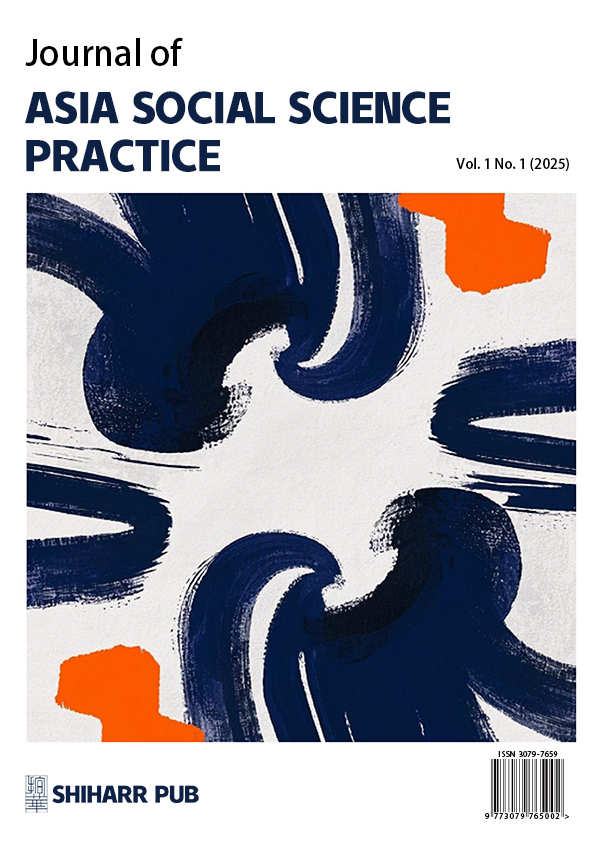PROTECTING MALAYSIA'S TECHNOLOGICAL AUTONOMY: INNOVATIVE GOVERNANCE FRAMEWORKS TO COUNTER DIGITAL HEGEMONIES
DOI:
https://doi.org/10.71411/jassp.2025.8Keywords:
digital colonialism, digital sovereignty, data protectionAbstract
This study investigates the manifestations and impacts of digital colonialism in Malaysia and proposes legal and regulatory reforms to safeguard the nation's digital sovereignty. Digital colonialism, characterized by the exploitation of data, digital infrastructure, and online platforms by powerful technology companies from the Global North, poses significant challenges to Malaysia's economic, social, cultural, and political fabric. Through a qualitative methodology combining theoretical analysis, case studies, and comparative policy research, the study finds that digital colonialism in Malaysia takes the form of economic domination by foreign technology giants, imperial control and surveillance capitalism, technological dependency, and the erosion of cultural identity in the digital sphere. The existing legal framework, including the Personal Data Protection Act 2010, Communications and Multimedia Act 1998, and Competition Act 2010, proves inadequate in addressing these challenges. Drawing lessons from the regulatory approaches of other Global South nations like India and Indonesia, the study recommends a comprehensive reform strategy encompassing the strengthening of data protection and privacy laws, regulating dominance in the digital market, promoting indigenous innovation capacities, fostering digital literacy, and forging strategic regional coalitions. By adopting a proactive and context-sensitive approach to digital governance, Malaysia can effectively assert its technological sovereignty and foster an inclusive digital economy that serves its national interests and citizenry.
References
References
Ayob, N. H., Aziz, M. A., & Ayob, N. A. (2022). Bridging the digital divide: Innovation policy and implementation in Malaysia. International Journal of Academic Research in Business & Social Sciences, 12(8), 1373-1389.
Butarbutar, R. (2020, March). Initiating new regulations on personal data protection: Challenges for personal data protection in Indonesia. In 3rd International Conference on Law and Governance (ICLAVE 2019) (pp. 154-163). Atlantis Press.
Couldry, N., & Mejias, U. A. (2020). The costs of connection: How data are colonizing human life and appropriating it for capitalism. Stanford University Press.
Department of Statistics Malaysia. (2021). Information and Communication Technology Satellite Account 2020. DOSM.
GlobalData. (2024). Malaysia e-commerce payments to grow by 12.8% in 2024, reveals GlobalData. GlobalData.
Hairi, E. H., & Safar, N. (2024). Digital governance in Malaysia: Navigating free speech, privacy, and new media. Journal Title, Volume(Issue), Page range.
Hassan, K. H. (2012). Personal data protection in employment: New legal challenges for Malaysia. Computer Law & Security Review, 28(6), 696-703.
Ismail, N. A., & Masud, M. M. (2020). Prospects and challenges in improving e-commerce connectivity in Malaysia. E-commerce Connectivity in ASEAN, 78.
Ismail, N. (2011). Personal data protection in Malaysia--law and practice. Publisher.
Jabatan Perlindungan Data Peribadi. (2020). Public Consultation Paper No. 01/2020: Review of the Personal Data Protection Act 2010. JPDP.
Kiat, H. W., Mazlan, N. A. S., Awang, H., & Mansor, N. S. (2024). Digital colonialism and its threats to Asian culture and civilization: What do teenagers say? International Journal of Islamic Theology & Civilization, 2(3), 38-42.
Kylasapathy, P., Hwa, T. B., & Zukki, A. H. M. (2017). Unlocking Malaysia's digital future: Opportunities, challenges and policy responses. Bank Negara Malaysia Annual Report.
Liu, H. W. (2018). Data localization and digital trade barriers: ASEAN in megaregionalism. In P. L. Hsieh & B. Mercurio (Eds.), ASEAN Law in the New Regional Economic Order: Global Trends and Shifting Paradigms. Cambridge University Press.
Malaysia Digital Economy Corporation. (2021). Malaysia Digital Economy Blueprint. MDEC.
Malaysia Competition Commission. (2021). Grab penalised RM86.77 million for abusive practices. MyCC.
Malaysian Communications and Multimedia Commission. (2021). Internet Users Survey 2020. MCMC.
Ministry of Foreign Affairs and Trade. (2023, July). Indonesia's National Strategy for Artificial Intelligence. Wellington: MFAT.
Ong, T. C., & Lee, M. F. (2024). Competition law in the e-commerce platforms market post-pandemic: A comparative analysis of the European Union, China, and Malaysia. Law and Development Review, Volume(Issue), Page range.
Said, F. (2022). Embracing technology, preserving data sovereignty. Kuala Lumpur: Institute of Strategic and International Studies.
Siddharta, A. (2024, December 12). Number of Facebook users in Malaysia 2019-2028. Statista.
SpeedTest. (2024). Speedtest Global Index - Monthly comparisons of internet speeds from around the world. https://www.speedtest.net/global-index
StatCounter. (2024). Search engine market share Malaysia Dec 2023 - Dec 2024. https://gs.statcounter.com/search-engine-market-share/all/malaysia
Thatcher, J., O'Sullivan, D., & Mahmoudi, D. (2016). Data colonialism through accumulation by dispossession: New metaphors for daily data. Environment and Planning D: Society and Space, 34(6), 990-1006.
Tiong, K. M., Cheng, M. Y., & Choong, C. K. (2022). The roles of ICT telecommunication infrastructure on foreign direct investment in Malaysia. Asian Academy of Management Journal, 27(2).

Downloads
Published
Issue
Section
License
Copyright (c) 2025 Journal of Asia Social Science Practice

This work is licensed under a Creative Commons Attribution-NonCommercial-NoDerivatives 4.0 International License.










